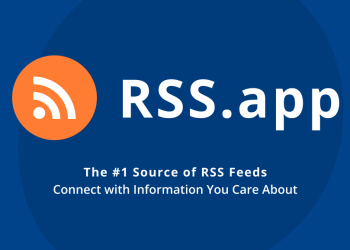A college admissions program popular among the country’s most selective universities may actually be skewed against lower-income applicants, college consultants and experts say.
Early decision is an option that allows students to single out their top-choice school and apply to it months before regular applications are due. The choice is binding, but the student is rewarded with an earlier answer from the school, and a higher percentage chance of getting in. Some highly competitive schools pick a large percentage of their incoming freshman class from this applicant pool.
While anyone can apply under the early decision deadline, some students literally can’t afford the risk.
Many students need to compare financial aid offers from multiple schools to negotiate their aid packages. They may also be vying for merit-based aid such as scholarships. For them, applying early decision is a risk.
A study released this month from the Harvard-based research group Opportunity Insights found that students from higher-income backgrounds are more likely to apply early to highly selective and Ivy League schools, many of which offer early decision applications.
For students whose families can afford to pay full or nearly full tuition and fees at these schools, applying early to these schools is a subtle demonstration of financial confidence. Experts say early decision is used at a higher frequency by students who do not need financial aid and who are aware early in their high school careers that applying early offers them a competitive edge.
According to the latest data from the University of Pennsylvania, the acceptance rate for students applying early decision was 16% for the 2022-23 academic year. By comparison, the regular admissions acceptance rate was 5%.
“Typically, we admit about half of the incoming class through the early decision admissions plan,” said a University of Pennsylvania spokesperson.
“It’s really to (the schools’) advantage, so they can fill out their class early,” said Marcella Bombardieri, a senior fellow at the Center for American Progress. “But when they’re filling easily half of their class early, it’s really reducing the opportunity for lower-income students.”
“In terms of scholarships, there’s a tendency to offer less merit-based aid to (early) applicants, because it’s used to entice students to come to an institution,” said Dr. Rachel Rubin, a higher education policy expert and co-founder of educational consulting company Spark Admissions.
There is also a critical information gap that prevents many students from reaping the admissions benefits of early decision programs, even if their family’s financial profile makes them eligible for robust need-based aid from both the federal government and the school itself.
“You have to be really well-prepared very early on in your senior year,” said Bombardieri. “You have to have adults in your life to guide you, whether parents who have been to college or guidance counselors who have a lot of time on their hands.”
According to a Duke University survey of incoming freshmen in 2022, a majority of those in the highest income bracket (whose parents made above $500,000 annually) said they had hired a private admissions counselors. These professionals help students navigate the cutthroat and complicated application process, increasing their chances of getting into selective schools. Students in the highest income brackets also tended to identify as White.
“(Early decision) is another form of affirmative action for well-off people, who are largely White,” said Bombardieri.
That same Duke survey found that nearly half of early decision applicants identified as White. An analysis of admissions data from Georgetown University’s Class of 2022 found that early applicants were 67% White.
After the Supreme Court gutted race-based college admissions in June, admissions practices that overwhelmingly favor wealthier White applicants have come under heightened public scrutiny. Legacy admissions, which involve schools favoring applicants who are children of alumni, have also faced criticism, leading some schools to drop the practice.
“Early decision is widely considered biased in its current form,” said Rubin, but noted that “there is ample room to reform early decision plans, and some schools have made strides to do so.”
For example, selective universities like Harvard, Yale, Notre Dame and Stanford offer a restrictive early action application, where students can apply to one school early but are not required to attend if they are accepted.
This practice “allows them to apply to other colleges within their regular decision plans and then compare options, including comparing, and potentially negotiating, financial aid packages,” said Rubin.
Sai Mandhan, an 18-year-old college student from Maryland, applied to Yale University last year under its restrictive early action program. He said he considered applying early decision to Cornell University, but ultimately decided against it.
“My parents were not too happy being boxed in to that financial commitment,” he said.
Mandhan said his family does not qualify for any tuition assistance, so a choice with more flexibility made more sense. “It’s still a lot of money to go to those schools. My family would have to pay $80,000 to $90,000 a year based on just the fact that I submitted (my application to Cornell) early decision.”
After applying to Cornell under the regular decision deadline, Mandhan was waitlisted. Now, he’s a freshman at the University of Maryland on a scholarship, studying computer science and math. “You can think retrospectively, ‘Had I applied early decision to Cornell … would I have gotten in?’”
But he said that choosing the binding early application is a consequential decision that goes beyond the financial aspect.
“At that point, I wasn’t 18 yet,” said Mandhan. “Looking back, I wasn’t in the capacity to make a decision that would’ve impacted my next four to five years.”
Read the full article here








